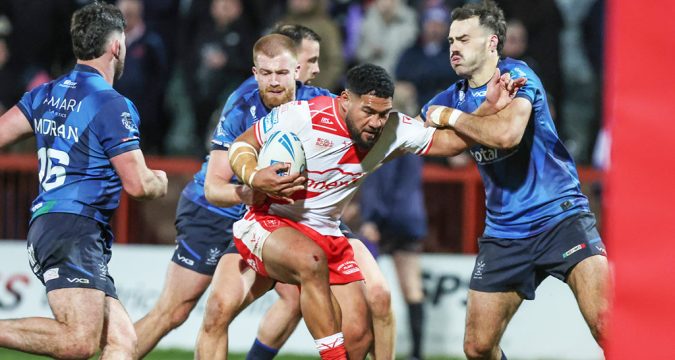 MICK O'HARE joins in the debate about how to cut down blowout scores in Rugby League.
IN this newspaper’s sister publication, Rugby League World, publisher Martyn Sadler bemoaned the fact that too often Rugby League games end up being one-sided, which happens far less frequently in other sports, most notably football.
Pretty much every season
MICK O'HARE joins in the debate about how to cut down blowout scores in Rugby League.
IN this newspaper’s sister publication, Rugby League World, publisher Martyn Sadler bemoaned the fact that too often Rugby League games end up being one-sided, which happens far less frequently in other sports, most notably football.
Pretty much every season How to reduce blow-out scores in rugby league and give underdogs a chance
 MICK O'HARE joins in the debate about how to cut down blowout scores in Rugby League.
IN this newspaper’s sister publication, Rugby League World, publisher Martyn Sadler bemoaned the fact that too often Rugby League games end up being one-sided, which happens far less frequently in other sports, most notably football.
Pretty much every season
MICK O'HARE joins in the debate about how to cut down blowout scores in Rugby League.
IN this newspaper’s sister publication, Rugby League World, publisher Martyn Sadler bemoaned the fact that too often Rugby League games end up being one-sided, which happens far less frequently in other sports, most notably football.
Pretty much every season 